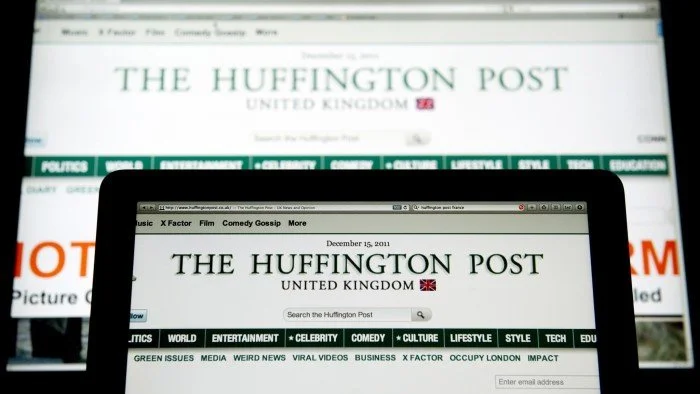Carved In The Web
John August’s lecture from now almost 20 years ago, Professional Writing and The Rise of the Amateur, still feels incredibly relevant today. It was delivered to university students who were about to enter the wider world as the internet was becoming the main way people interacted with each other and gathered information about the world around them. It’s not a short read, but it’s worth diving into; I was so impressed by it after reading the transcript that I translated the whole text into Italian and was published in an issue of L’Unità.
August’s lecture deals with the simple fact that everything we write online lasts forever,
This was not exactly an easy concept to wrap one’s head around at the time. Humanity just gained access to an almost free global message board that allowed everyone to publish their words without any editorial oversight, for billions to (potentially) see.
Social media was still in its infancy, and the most common way for people to share their writing was through blogs: simple platforms that allowed everyone to have websites that looked like a cross between a public journal and a privately owned, written and published newspaper. Some blogs quickly became extremely popular, and their influence rivalled major magazines and websites. In the lecture, August explored how many blogs, regardless of their influence, did not act professionally.
He used the example of Ain’t it Cool News, a very popular movie blog at the time (and still running), which often shared breaking news obtained through inside sources. The website had published a review of August’s script for Tim Burton’s take on Charlie and the Chocolate Factory. When August read the story, he realised that the review was completely made up: the script mentioned was nothing like the one he wrote. He had a contact at the website, and after a bit, the website published a correction, explaining that the review was indeed not accurate.
August was struck by the experience, especially because the website seemed to be quite nonchalant about publishing bad information. After all, they explained, they were just a blog, not a professional magazine, so there was no real expectation of accountability. August underlines how pernicious that thinking can be: once independent blogs become just as influential as traditional magazines and newspapers, fulfilling a similar service, accountability should be one of their priorities
Cut to: Everyone is a publisher.
The Huffington Post is one of the first outlets to have blurred the line between blog and newspaper
Soon after the article was published, social media became more central to how we use the internet. People slowly stopped writing blog posts, instead sharing their thoughts in bursts of public posts, often extremely short, to adhere to the design constraints set up by platforms like Twitter, which limited each communication to 140 characters, less than an SMS. The line between sending a text to a friend and publishing your thoughts to a global audience became so blurred that it stopped existing.
What August noticed in the way the line between professionalism and amateurism blurred more and more became much more radical in the decade and a half since he published his article. People get information through social media sources just as much as they do from official, professional ones, and younger people do it even more.
But Twitter, Facebook, Instagram, TikTok and other social media platforms are not just tools, but also businesses that push specific incentives to its users, to drive them to interact with their product as often as possible.
The very first version of Twitter.
These platforms gamify communication by rewarding users when they create memorable, engaging content. And that drives people to share memorable, funny, catchy ideas, which can also mean fear-inducing, hateful, extreme content. Those are editorial incentives, even if for most people it would be hard to recognise them as such.
And they are rather sneaky incentives. When writing for a newspaper, you have an editorial team that explains and polices the editorial style of what will be published very clearly. In the case of social media, the incentives, and the rules of the game, are never explicit. For most of us, sharing thoughts online is just a way to vent, to reach friends and play. But these words linger; they will be online for a very long time, potentially for the entire span of our lives.
They create a sort of digital persona that will shadow us for the rest of our lives. One that people can use to figure out who we are, what we stand for, and what, and how much, we can contribute.
August framed this in terms of being a professional because he was addressing young people about to dive deep into the job market. And he described what being a professional means in very effective ways.
JOHN AUGUST’S 5 SKILLS TO BE A PROFESSIONAL
Presentation: If your writing is rambling and incoherent and ungrammatical, people are going to judge you on that.
Accuracy: If you’re flat-out wrong, that matters. And that’s not just in the sense of journalism. If you’re drawing conclusions that aren’t backed by the data, that’s a problem. If you’re studying human cloning, you can go from being the hero of South Korea to its greatest villain in about a week. Trust me, that guy isn’t going, “No, you don’t understand, I’m an amateur cloner.”
Consistency: Can people count on you? I’m sure everyone in this room has had to do a group project. And there’s always that one guy who doesn’t pull his weight. Shows up late. Didn’t get that thing written quite yet. Don’t be that guy. You need to show up, on time, and be ready.
Accountability: Do you stand behind what you say, and what you do? It’s really easy to have strong opinions. It’s a lot harder to live by them.
Meeting Peer Standards: Going back to Thanksgiving, once you graduate to the adult table, you really can’t go back to the kiddie table. You can’t throw food any more, or they’re going to stop inviting you.
Reading this is 2024, this list might read as being slightly quaint, given that some extremely influential news sources and politicians do not care for most of these skills. August wrote this before the concept of influencer even existed.
Today the line between amateur and professional seems to be as blurry as ever. I think there are clear ethical reasons to act as a professional when it comes to communication. But even if one is cynical about ethics and sees it as a way to give nobility to privilege, there are practical reasons why being professional pays off in the long run, even if it’s a harder approach to take for daily interactions.
This has a lot to do with what we are attracted to, as opposite to what we actually value. We are attracted to drama, conflict, shocking headlines and weird news. But we value consistency, accuracy,
When you write on the internet, no matter if it’s on social media, a blog post, or an email, treat that writing as if it will last forever. Direct messages are a different deal but to an extent. Given how fragile security layers are on the internet, it’s not a bad idea to avoid sending a friend something you would never want other people to read.
This means that learning basic editorial practices, like the ones August outlines, is a very good idea to live on the internet in a way that, in the future, can allow you to leave behind a legacy of written words that you will not be ashamed of.
The Authenticity Paradox.
Casey Neistat is a documentary filmmaker who has built a massive YouTube channel. For a while, he published a video every single day, creating a fascinating hybrid between filmmaking and diary. His videos feel extremely authentic but are also the product of great linguistic knowledge.
What I am describing seems like a lot of work, and to people who have grown up with social media, it can also seem like a pathway to becoming a phoney.
Now that social media has allowed us to share high-quality pictures, video and audio content, we are living in a world where self-published content and high-budget legacy media battle for people’s attention daily, with relatively similar levels of production quality, but very different tones and styles. The birth of the influencer has popularised a conversational, casual style that is being adopted by celebrities, politicians, cultural professionals and journalists. One where people value authenticity more than anything else. in this context, it’s very important to realise how much authenticity is, in itself, just another editorial style.
Whenever we publish something, as opposed to communicating something directly, we are creating an editorial product, there is a mediation between who creates and who spectates.
So authenticity in that context becomes purely a style. A way to perform in a style that feels effortless, natural, and spontaneous. But it’s key to realise the performative nature of that form of authenticity; to recognise it as a performance.
Blogs, social media, direct video streaming platforms and podcasts have made it so that a lot of people have mastered a conversational, casual tone in their communication. There is something very compelling in seeing a video from someone who talks on camera as if they are your friend and effortlessly communicates their thoughts as if you’re just having a beer with them after a long day. They feel like our friends, someone we can trust. On the other hand, seeing someone who is using a more broadcast-style communication style can make many trust that person less, because they seem less authentic.
Anyone who has worked in communication knows that “authentic” has nothing to do with being honest and truthful; it has everything to do with style. Speaking in front of a camera or sharing a post online is not like chatting with friends or sending them a private message. They are editorial actions and require thought, planning and skills.
To understand this, and not be fooled by stylistic choices, is also a great way to look into the substance of what someone is sharing. This is especially important with politicians. What matters is their policy agenda: their track record; and whether or not they are accountable for their actions. The fact that they might appear at ease when in front of a camera shows that they have communications skills, but say very little of substance.
Consistency over time.
All of us will keep living in an era of shifting eras. It’s no wonder that narratives based around the idea of multiverses have become very popular in the past decade: we can see so many facets of the world, and we see the world changing so often in very short periods, that it’s very easy to think that following trends is the only way to survive. The news media is always on the hunt for novelty. Sometimes, to become extremely famous for a very short amount of time can settle someone for life, and that creates the illusion that short-term strategies are the best.
But the great thing about August’s post is that it focuses on the importance of fundamentals, and these fundamentals paradoxically are more and more valuable as time goes by: when the line between professional and amateur thins more and more, professionalism becomes very valuable at high levels.
This means, at times, resisting the temptation to publish something eye-catching to get some short-term attention to focus on building a more consistent, higher-quality stream of communication over time. The payoff might take longer. It does take patience. But if you think of anyone who you are worth looking up to, I bet you’ll find that they have the kind of qualities that allow them to be consistently good at something, and reliable.




